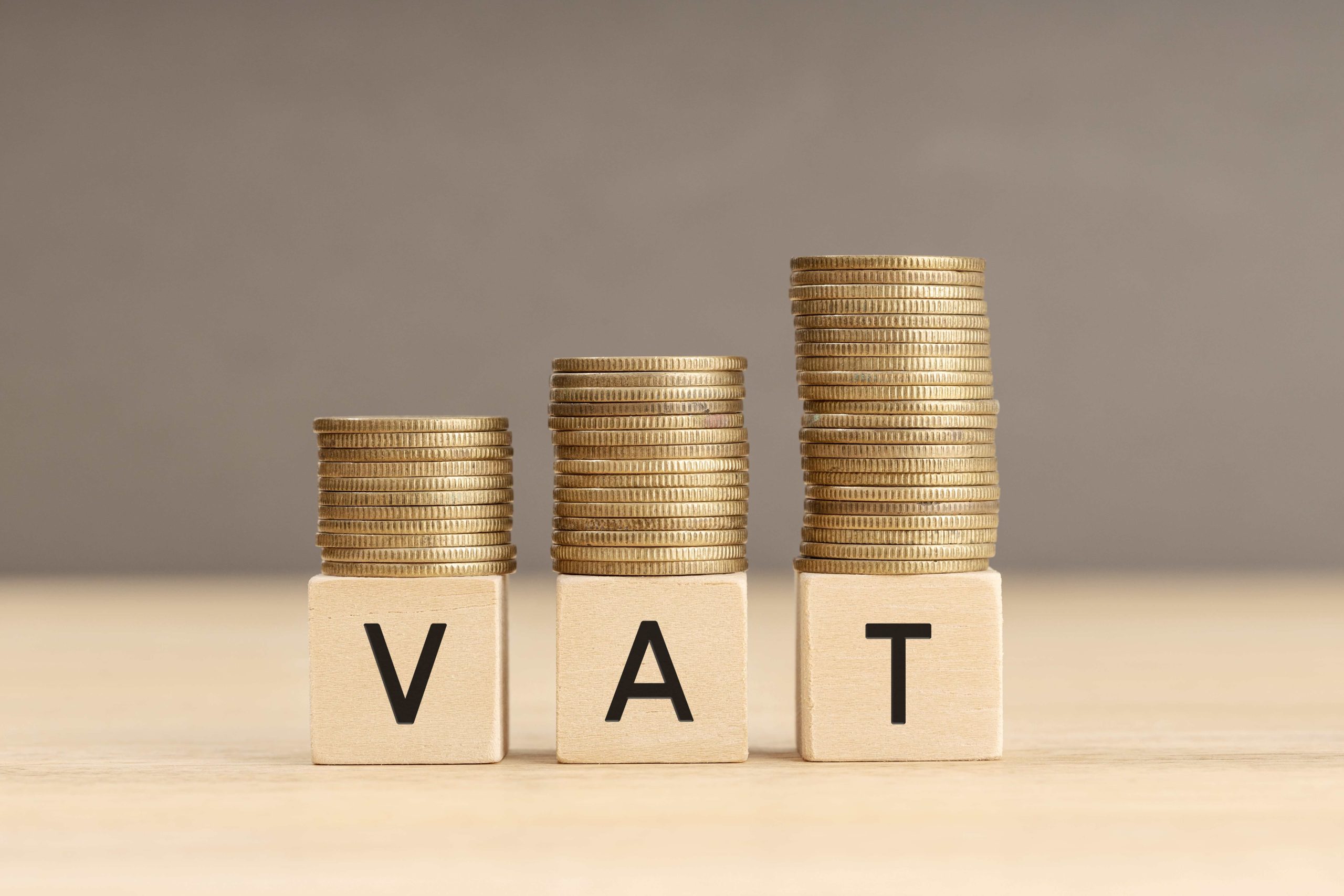The recent increase in the VAT exemption cap for housing purchases is expected to be advantageous for Vista Land’s Crown Asia. Prospective homeowners interested in Crown Asia’s ready-for-occupancy (RFO) units stand to save a lot of money now that the threshold has been raised to P3.6 million. The adjustment is in line with ongoing efforts to increase homeownership accessibility in light of shifting economic conditions and is motivated by the BIR’s dedication to taxpayer service. Crown Asia has a fantastic opportunity with this development to draw in more purchasers looking for low-cost housing options without having to pay extra for VAT. Crown Asia can take advantage of this advantageous regulatory change to strengthen its market position and help Filipinos realize their dream of owning their own homes as the demand for RFO units soars.
BIR raises VAT exemption cap for housing to P3.6M
The Bureau of Internal Revenue (BIR) recently announced a significant increase in the value-added tax (VAT) exemption cap for housing purchases, raising it to P3.6 million from the previous P3.2 million. This action, outlined in Revenue Regulations No. 1-2024, is in accordance with Section 109(P) of the National Revenue Code, which requires periodic adjustments based on the Consumer Price Index. The decision demonstrates the BIR’s commitment to improving taxpayer service and matching regulations to economic realities. By raising the VAT exemption cap, the BIR hopes to reduce financial burdens on homebuyers while also stimulating the housing market, especially in light of changing economic conditions. This adjustment represents the government’s proactive approach to supporting affordable homeownership and promoting growth in the real estate sector in the Philippines.
What does VAT exempt basically mean?
Value-Added Tax (VAT) is a significant component of many economies worldwide, functioning as a consumption tax applied at various stages of production and distribution. This means that at each step of the supply chain, from raw materials to the final sale, a certain percentage of VAT is added to the cost of goods and services. However, amidst this system, there exist certain exceptions known as VAT exemptions, where specific goods or services are not subjected to VAT. These exemptions play a crucial role in shaping the economic landscape, often influenced by factors such as the necessity of the product or service, its social significance, or its alignment with governmental regulations or mandates. Consequently, VAT exemptions can alleviate financial burdens on consumers by reducing the overall cost of certain items or transactions, thus contributing to a more equitable distribution of tax obligations within society.
Who are qualified for VAT exempt in the Philippines?

VAT (Value-Added Tax) exemptions are available for specific transactions and entities. Small companies whose yearly sales are less than the VAT threshold are typically not required to register for or collect VAT. Furthermore, the legislation exempts or zero-rates certain goods and services from paying VAT. Sales of residential lots valued below a specific threshold, sales of agricultural products in their original state, and sales of healthcare and educational services are typical instances of transactions exempt from VAT. The sale of products or services that are subject to a 0% VAT rate but are still regarded as VAT-registered transactions is known as a VAT-zero-rated transaction. This frequently includes services and sales of exports to clients or entities abroad. To guarantee compliance with Philippine tax laws, companies and individuals must comprehend the particular requirements for VAT exemption.
VAT exempt on sale of residential property
Sales of residential real estate are governed by special VAT laws, with some exemptions intended to ease the financial strain on prospective homeowners. For example, if the selling price of a residential property is less than a predetermined threshold, the transaction is usually free from the standard 12% value-added tax (VAT). This includes house and lot packages and other residential dwellings. This VAT exemption threshold for residential property sales is P3,199,200 as of the most recent updates. In essence, no VAT is applied to a residential property sale if the selling price is less than this threshold, which lowers the total cost to buyers.
Promoting housing affordability is the goal of this exemption mechanism, especially for individuals and families looking to buy residential properties within the designated price range. This policy aims to increase the number of people who can invest in their own homes and foster socioeconomic stability by reducing the VAT burden on residential properties that are priced lower.
VAT exemption threshold on sale of house and lot, and other residential dwellings updated to P3,199,200
After a recent adjustment, the VAT exemption threshold for the sale of residential dwellings, including houses and lots, is now P3,199,200. This update represents a significant increase over the previous threshold, indicating the government’s acknowledgement of the difficulties faced by homebuyers in the current economic environment. The government wants to make it easier for people who want to buy homes, especially in light of the rising cost of real estate, by increasing the exemption limit. This action is anticipated to increase activity in the housing market and increase the number of people who can become homeowners. All things considered, the government’s willingness to assist the housing industry and foster economic expansion through the facilitation of property ownership is demonstrated by the modification to the VAT exemption threshold.
BIR’s Impact in Real Estate Taxation Policies

The application and enforcement of tax laws pertaining to real estate transactions is one of the BIR’s main areas of concern. This includes a broad range of taxes, such as capital gains tax, value-added tax (VAT), and documentary stamp tax, among others. These taxes, which have an impact on both buyers and sellers, are essential elements of real estate transactions.
When it comes to VAT, the BIR’s rulings on exemptions and thresholds are among the most important. The recent adjustments to the VAT exemption caps for house and lot purchases serve as an example of how the BIR’s policies have a direct impact on market dynamics and housing affordability. These changes have the potential to profoundly affect people’s purchasing power and real estate developers’ profitability, which will ultimately influence the direction of the real estate industry as a whole.
Effect on Real Estate Developers and Investors
For starters, tax policies have a direct impact on project viability because they alter the financial landscape of real estate developments. Changes in tax rates or regulations, such as VAT exemption thresholds, can have a significant impact on a project’s overall cost structure, potentially influencing feasibility and investment decisions. Furthermore, tax policies affect the profitability of real estate ventures by influencing revenue streams and cost considerations. Higher tax burdens may reduce profit margins for developers, while investors’ return expectations may be adjusted in response to tax implications.
Taxation policies influence the overall attractiveness of real estate investments. Potential tax deductions, incentives, and overall tax efficiency all have an impact on investor sentiment and appetite for real estate assets. As a result, the BIR’s taxation policies have a direct impact on the incentives, risks, and returns associated with real estate development and investment, ultimately influencing the industry’s growth and sustainability.
Consumer Price Index’s Effect on Real Estate Regulations and Prices
The Consumer Price Index (CPI) measures changes in the prices of goods and services commonly purchased by households, and it is a key metric for policymakers when evaluating economic conditions. In the real estate industry, fluctuations in the CPI can cause adjustments in regulatory thresholds, such as VAT exemption caps, to account for changes in the cost of living and market conditions. CPI data also influences interest rate and monetary policy decisions, which have an impact on mortgage rates and housing affordability. As a result, real estate regulations and prices are inextricably linked to CPI movements, as policymakers strive to strike a balance between economic stability and ensuring consumers have access to affordable housing.
Long-Term Implications for Real Estate Sector

The stability and expansion of the real estate industry are subject to a variety of long-term effects of CPI-driven regulatory changes, some of which go beyond short-term market responses. CPI-driven regulatory changes may have an initial impact on market dynamics and housing affordability, but their effects on the sector’s stability and growth are dependent on broader economic factors like investor confidence and market volatility. Continuous CPI-driven regulatory changes have the potential to alter investor perceptions of the stability of the real estate market over time, which could have an impact on market liquidity and investment choices. Furthermore, changes in CPI-driven regulations could bring in uncertainty and cause market volatility as players adjust to the new environment. Therefore, in order to promote sustainable growth in the real estate sector over time, policymakers must carefully consider striking a balance between regulatory adjustments and market stability.
The Duterte-era Tax Reform
Known officially as the Tax Reform for Acceleration and Inclusion (TRAIN) law, the Duterte-era Tax Reform was an important advancement in the tax system of the Philippines during Rodrigo Duterte’s presidency. The TRAIN law was enacted in 2017 with the primary objectives of streamlining the tax code, increasing revenue generation for essential infrastructure projects, and offering low-income earners relief by modifying income tax brackets. The value-added tax (VAT) exemption threshold for house and lot purchases was lowered to P2 million as a result of the law, which elicited mixed reactions. This big shift attracted a lot of notice and criticism, especially from housing industry players in the country.
Opponents contended that the reduced threshold might discourage prospective buyers, particularly those with middle-class incomes, and thereby cause the real estate market to stagnate. Concerns were also expressed regarding its detrimental effects on the affordability of housing, particularly in urban areas where real estate prices are typically higher. Even though the change might have immediate effects, supporters of the tax reform argued that it was intended to ensure fairness in taxation and streamline the tax system. The Duterte-era Tax Reform shaped discussions about taxes and fiscal policy in the Philippines by reflecting a complex interplay of political priorities, societal effects, and economic goals.
Economic Aspects of Setting Value added tax Exemption Thresholds for Residential Properties

The threshold controls when a property is subject to value-added tax (VAT), which has an immediate impact on housing affordability and market dynamics. Choosing these thresholds in a way that balances government revenue generation with housing accessibility is a policy imperative. By lessening the tax burden on purchasers, a higher threshold can increase demand and possibly boost the real estate market and investment. On the other hand, a lower threshold might increase government revenue but limit affordability and deter potential homeowners. Therefore, in order to establish VAT exemption thresholds that support both fiscal goals and the accessibility of residential properties to potential buyers, policymakers must evaluate inflation rates, consumer purchasing power, and general economic conditions.
Public Perception and Stakeholder Responses to Tax Reform Measures
Changes intended to address economic challenges or improve revenue collection efficiency may be welcomed by some individuals and organizations, but others may voice opposition or concerns because they believe the changes will negatively affect their financial security or wider societal interests. Depending on their unique circumstances and interests, real estate stakeholders such as developers, agents, and homeowners may respond in different ways. Higher VAT exemption thresholds may be welcomed by buyers since they may reduce the up-front expenses of buying a property, but industry associations supporting affordable housing may argue for even higher thresholds to better reflect current economic conditions.
However, lawmakers may proceed cautiously with tax reform due to worries about possible revenue loss or unforeseen consequences. Fairness, economic efficiency, and the distributional effects of taxation policies are frequently discussed in public discourse in relation to tax reform measures, underscoring the significance of open communication and stakeholder participation in the process of determining tax policy. The implementation and efficacy of tax reform measures can ultimately be influenced by stakeholder responses and public perception, which emphasizes the importance of inclusive policymaking processes that take a variety of interests and perspectives into account.


